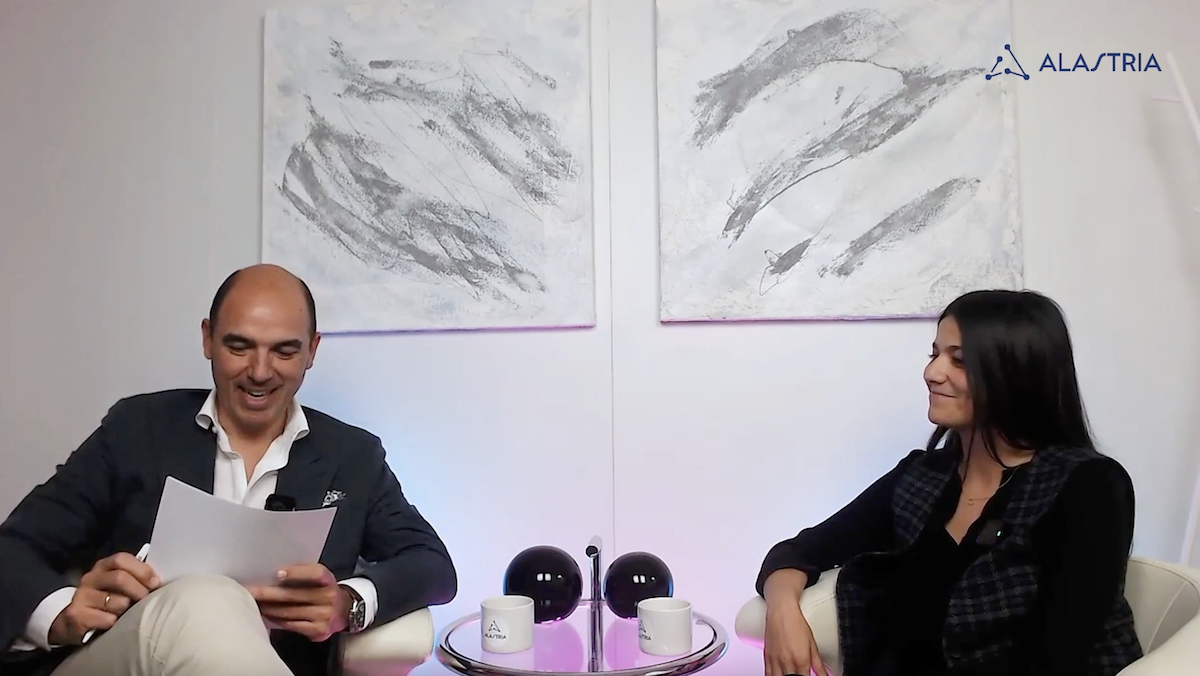
Episode 14: Web3 Loyalty Programmes. With Paula Pascual
In this episode we explore the evolution of loyalty programmes powered by Web3 with Paula Pascual, CEO and founder of Merge Madrid. Increasingly, customers – and especially Generation Z – want to get something more from brands: they want to feel part of a community. This is where Web3 offers a differential value because it facilitates the possibility of collaborative programmes, where customers enjoy benefits beyond a single brand’s own ecosystem, connecting different platforms. The global loyalty market is expected to double by 2027, exceeding 200 billion dollars.
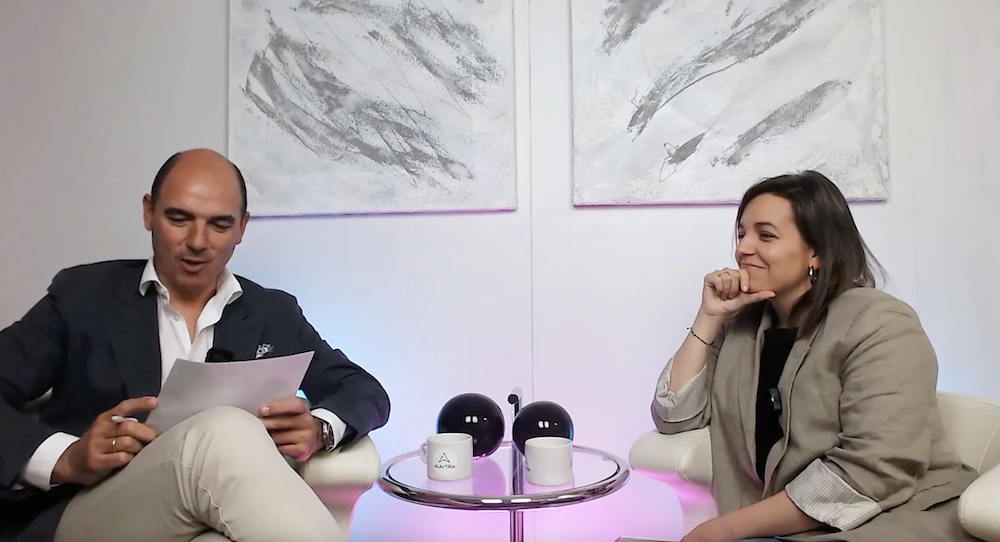
Episode 13: One year after the Pilot Regime, where are we? With Mariona Pericas
A year after its entry into force, the Pilot Regime still has some unfinished business. In this episode, we speak with Mariona Pericas, a partner at finReg360, to assess this regulation’s progress. It aimed to explore and experiment ‘in real life’ with DLT technology and its potential to transform capital market infrastructures. Despite the absence of authorizations for market infrastructures or tokenized money in Spain, Mariona remains optimistic. ‘We have to try it out, get started, and then make necessary adjustments.
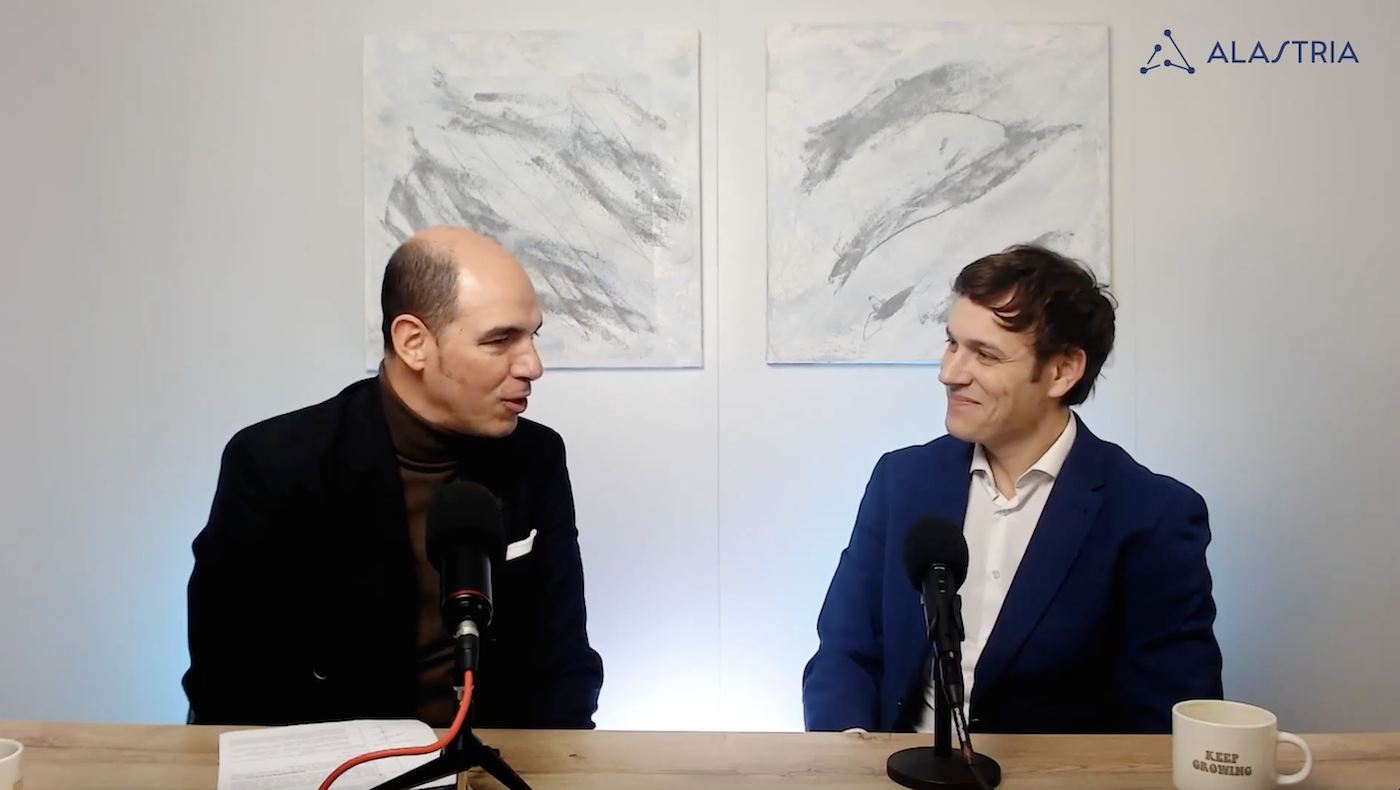
Episode 12: Investment in Web3 Startups. With Luis Pastor
In this episode we have Luis Pastor as our special guest to talk about investing in Web 3.0 Startups. Luis is CEO of Tritemius, but he has also been with us at Alastria since the beginning and is currently vice-president of our associationLuis values the ‘winter’ past -of the crypto world and also of venture capital- as an opportunity: one that allows us to separate the wheat from the chaff. “We can identify the opportunities that will revolutionise the coming years in this particular technological paradigm of web3, thanks to favourable positions such as regulation, institutional adoption, more solid entrepreneurial projects and, from the investor’s point of view, fair price valuations”.
With 580 million active wallets and an adoption rate that would surpass the equivalent of the pre-internet years, the web3 industry opens up a window of opportunity for other businesses, particularly in gaming. 40% of the world’s population plays games and the gaming industry moves more than the film and music industries combined. In short, a sector that is seen as an enabler for mass adoption in the next 10 years.
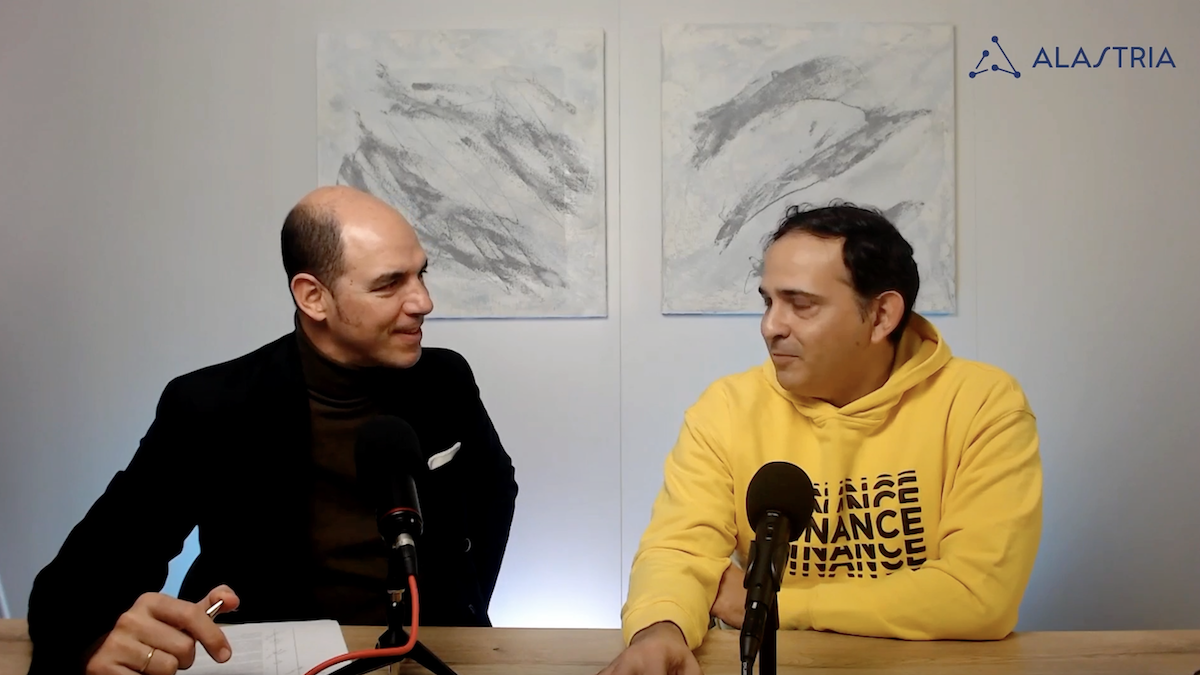
Episode 11: Let’s talk about Halving, ETFs and more. With Javier García de la Torre
What is halving? And staking? We talked to Javier García de la Torre, Binance’s country leader for Spain and Portugal, about these words and other questions related to the crypto universe. We also talk to Javier about the growing institutional interest in cryptocurrencies, driven by the arrival of ETFs in the United States and the MiCA regulation that provides security to investors. We discuss Binance’s strategic partnerships and other initiatives underway, as well as his vision for 2024, which includes the need for a technological evolution for the growth and mass adoption of blockchain and cryptocurrencies.
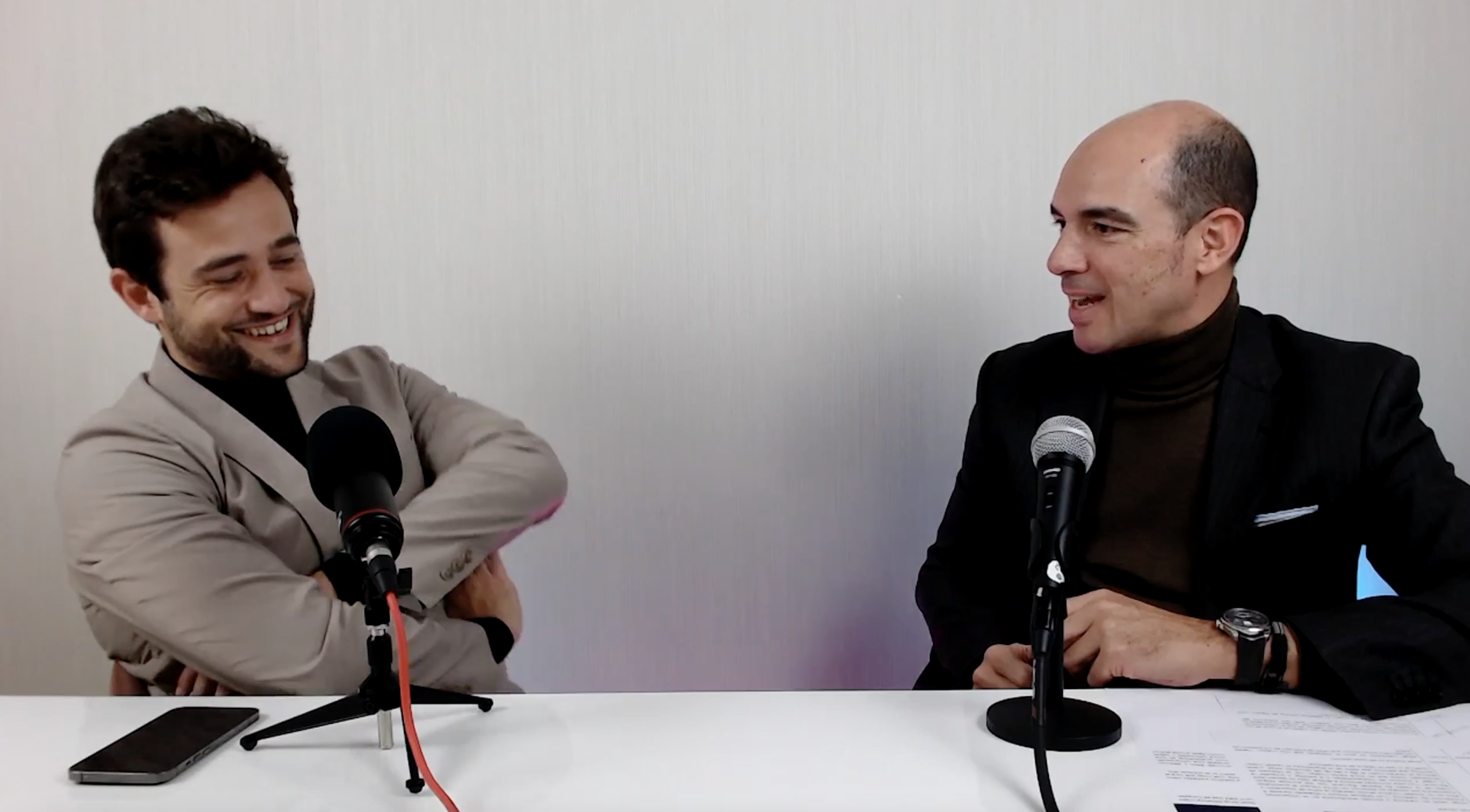
Episode 10: Is crypto spring coming? With Jorge Soriano
In this episode, we speak with Jorge Soriano, CEO of Criptan, discussing the lessons learned in the crypto world in 2023 and what appears to be on the horizon for 2024. According to Jorge, the maturity of the ecosystem, regulatory advancements, and the influx of institutional clients are driving the momentum toward mainstream adoption. We delve into Spain’s adoption, emphasize the significance of breaking entry barriers, and highlight the necessity of simplifying the complexities of this industry for greater accessibility. Additionally, explore Jorge Soriano’s personal journey and Criptan’s progression from their initial steps in the crypto world to securing financing rounds of 3.5 million euros.

Episode 9: Blockchain & Sustainability. With Aída Rodríguez and Marcos Carrera
Sustainable blockchain and blockchain for sustainability are the two perspectives we address in this episode with Aída Rodríguez, Transformation Director at Valora Consultores, and Marcos Carrera, Head of Blockchain & Web3 Iberia at Fujitsu.
We talk about how the evolution of technology has been accompanied by a reduction in energy costs and also how trust in blockchain allows, on one hand, the traceability and integrity of data with impact on value chains for measurement and reporting, and on the other hand, the development of other layers such as tokenization or regenerative finance that seek to build more sustainable value in sectors such as manufacturing and agri-food.

Episode 8: Crypto taxation. With Sandra Adrián
Trading and investing in cryptocurrencies is an activity that has more and more followers and this points to the fact that these cryptoassets have gone from being in the hands of a few Early Adopters to being assets with a relevant level of adoption in the sector, with associated tax obligations. Find out what are the main tax aspects that anyone who has cryptocurrencies should know in this conversation with Sandra Adrián, Blockchain & Cryptocurrencies advisor at Modo Critpo.

Episode 7: The (r)evolution of digital identity. With Carlos Pastor
Europe has given a boost to digital identity with the eIDAS2 regulation, the EUDI wallet toolkit and the launch of the large pilots. To understand what digital identity is, why blockchain is the most appropriate technology and what benefits it brings for citizens, companies and public administrations, we talked to Carlos Pastor, director of Blockchain Strategy at Inetum, collaborator of the EBSI/ESSIF Project in the European Blockchain Partnership and leader of the Digital Identity Commission at Alastria where the Alastria ID model, a reference for Spain and the rest of Europe, is being developed.

Welcome MiCA, now what?. With Alfredo Muñoz
MiCA regulation places Europe as a benchmark for legal certainty in the cryptoassets market, compared to other geographies such as the United States, Latin America or Asia. As a result, Europe is becoming a pole of attraction for companies and investors in the crypto world, with a regulation that brings clarity and certainty while fostering innovation. In this episode, Alfredo Muñoz ‘unpacks’ MiCA to understand how it regulates product (taxonomy), regulates market (insider trading, market abuse and competing authorities) and regulates service providers (who’s who). He also explains how MiCA will coexist with existing regulations and the level 2 and 3 developments expected for its implementation.

Epidose 5: NFT & Web3. With Robby Yung
Robby Yung, CEO at Animoca Brands, is the guest of this new episode of Blockchain Bites. With him we talk about Web3, the potential of NFTs in the gaming ecosystem, interoperability between metaverses and the importance of digital identity in this context. Don’t miss this episode, the first in English, to learn how Animoca Brands is working to advance digital property rights and contribute to the creation of the open metaverse.